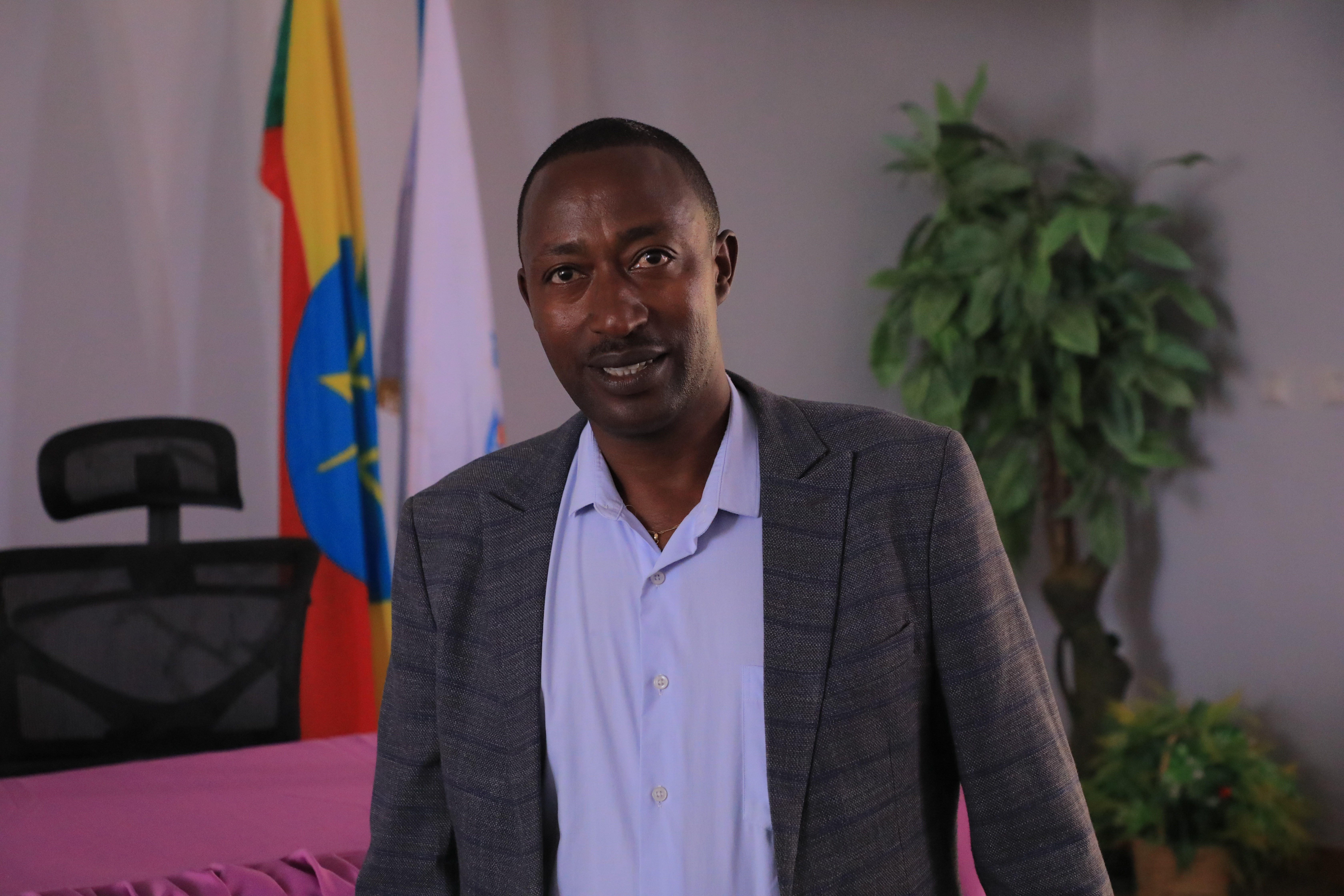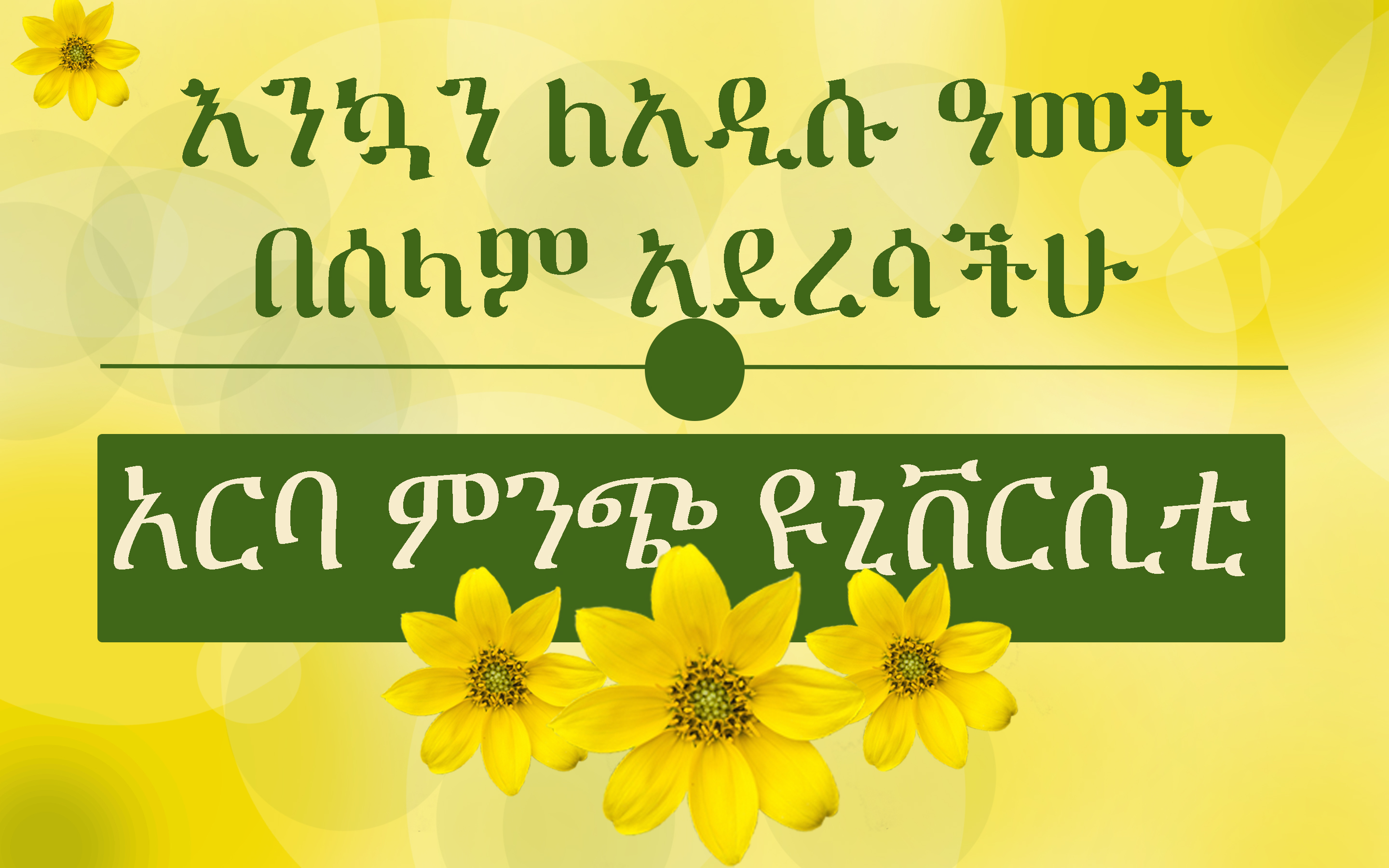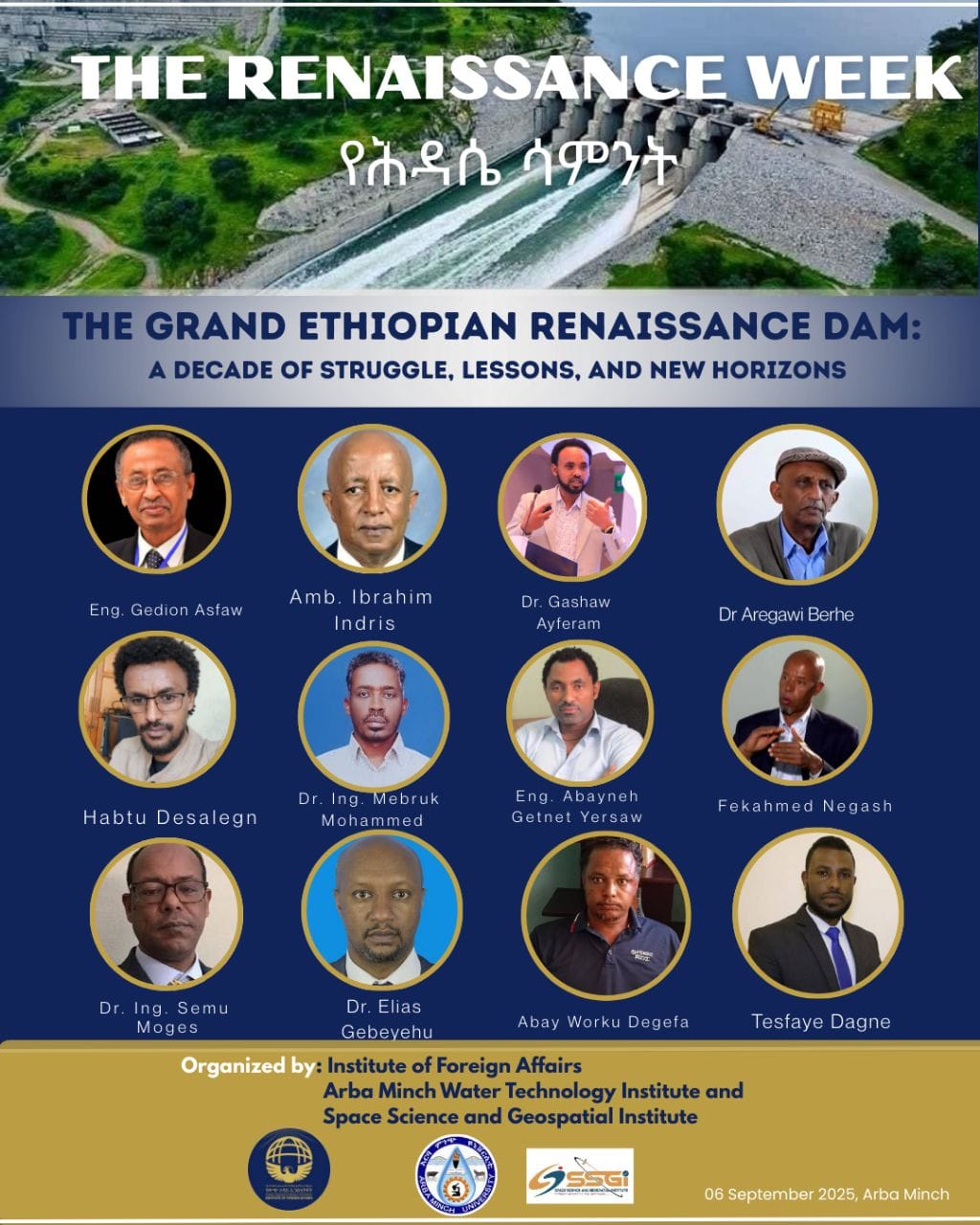
- Details
The School of Graduate Studies (SGS) at Arba Minch University (AMU), established in 2002, is committed to producing highly skilled professionals, researchers, and academicians who can advance knowledge and deliver innovative solutions to societal challenges. SGS oversees a broad range of multidisciplinary graduate programs across AMU’s main campus, satellite campuses, field sites, and technology-enabled learning platforms. Offering Master’s and PhD programs, it stands as a center of academic excellence that integrates advanced training, cutting-edge research, and community engagement with a global perspective. Our students, drawn from across Ethiopia and beyond, bring diverse academic and professional experiences, united by a desire to make a meaningful impact. Each year, SGS graduates hundreds of leaders equipped with critical thinking, research expertise, and professional competence, supported by a distinguished faculty of Ethiopian and international scholars who blend rigorous theory with real-world application.
Recognizing the vital role of technology in modern education, SGS is expanding its reach through e-learning and off-campus delivery modes, enabling professionals to pursue advanced degrees while maintaining their careers. Field-based programs in areas such as engineering, water resources, public health, agriculture, and business harness AMU’s strategic location and expertise to address the needs of the Rift Valley and beyond. The School also forges strong partnerships with governmental, non-governmental, and international organizations to enhance the quality and relevance of its programs. Looking forward, SGS aims to broaden its academic offerings by introducing new Master’s, PhD, postdoctoral, and professional certificate programs, while maintaining the highest standards of academic excellence, innovation, and societal relevance-preparing graduates to lead and drive positive change at both national and global levels.
Vision
The School of Graduate Studies aspires to be a globally recognized center of excellence in training, research, and community service, producing high-caliber professionals, addressing societal needs, and driving holistic, sustainable development in Ethiopia and beyond.
Mission
The mission of the SGS is to produce competent professionals through high-quality graduate and postgraduate programs that address societal and global needs. SGS advances Ethiopia’s development by delivering relevant degree programs, conducting innovative research, fostering scholarly endeavors, and promoting sustainability, economic growth, and lifelong learning.
Values
In all its endeavors, the SGS commits to:
- Excellence, quality, and service.
- Accountability, transparency, and responsible stewardship.
- Inclusivity, diversity, and respect for all.
- Ethical and professional standards.
- Innovation and creativity.
- Intellectual curiosity, academic freedom, and integrity.
- Wise management of resources and infrastructure.
- Engaging with local and global communities.
Goals
The SGS develops professionals and leaders capable of:
- Solving complex societal challenges with innovative, evidence-based solutions.
- Conducting impactful basic and applied research that advances knowledge and drives societal progress.
- Excelling professionally and fostering innovation, critical thinking, and ethical practice in their fields.
- Promoting sustainable development, social equity, and positive societal change.
- Engaging in interdisciplinary collaboration to address global and local issues.
- Contributing to policy formulation, community development, and knowledge dissemination.
- Mentoring and inspiring future generations of scholars and practitioners.
- Embracing lifelong learning to adapt to evolving societal and technological challenges.
Core Mandates
The SGS is mandated to:
- Create a conducive environment for teaching and learning at MSc and PhD levels.
- Ensure both quality and expansion of programs, without one being compromised for the other.
- Advance need-based research aligned with national policy priorities.
- Design and implement graduate programs responsive to institutional and national needs.
- Publish and disseminate research findings and organize forums for scholarly discussion.
- Establish and manage academic journals and newsletters.
- Contribute to the capacity building of public and nonprofit institutions, including upgrading academic staff qualifications.
- Collaborate with the Institutional Quality Assurance Directorate on relevance and quality matters.
- Undertake other activities consistent with its mission and the vision of AMU.
Organizational Structure
The SGS operates through:
- Department Graduate Committees
- College/School/Institute Academic Commissions
- The Graduate Council
Department Graduate Committee
The Department Graduate Committees (DGC) functions as the primary academic and administrative bodies for graduate studies within each department. Guided by the policies (including the Senate legislation) of the University and the directives of the Council of Graduate Studies, the DGCs are responsible for:
· Implementing admission requirements for departmental graduate programs.
· Proposing and reviewing curricula, courses, and examination arrangements.
· Monitoring the academic progress and performance of graduate students.
· Recommending candidates for graduation upon fulfillment of degree requirements.
· Advising on the introduction of new graduate programs within the department.
· Ensuring compliance with SGS regulations and maintaining academic standards.
College/School/Institute Academic Commissions
The Academic Commissions of Colleges, Schools, and Institutes operate as the governing bodies for academic affairs within their respective units. Working in accordance with University policies and under the oversight of the Council of Graduate Studies, these commissions are responsible for:
· Overseeing the planning, coordination, and delivery of graduate programs within the unit.
· Reviewing and endorsing departmental proposals for new programs, courses, and academic regulations.
· Ensuring the quality and relevance of curricula and examinations.
· Monitoring academic standards, research output, and student performance.
· Facilitating collaboration among departments and promoting interdisciplinary graduate studies.
· Upholding the rules, guidelines, and strategic objectives of the School of Graduate Studies.
Council of Graduate Studies
The Council of Graduate Studies (CGS) serves as the governing authority of the School of Graduate Studies. In alignment with the University’s policies, the CGS is responsible for:
· Defining the requirements for admission into graduate programs.
· Designing and overseeing programs of study, including examinations.
· Establishing and maintaining standards for the awarding of graduate degrees.
· Recommending the introduction of new fields of graduate study.
· Formulating regulations deemed necessary for the effective governance of the SGS.
· Exercising general oversight over the operations and affairs of the SGS.
University-wide policies apply to the SGS with necessary adaptations. The SGS may also run joint graduate programs in collaboration with other universities until it develops full independent capacity.
Programs Offered
The SGS, through its colleges, schools and institutes, offers programs leading to:
- Master of Arts (MA)
- Master of Science (M.Sc.)
- Master of public health (MPH)
- Master of Laws (LLM)
- Doctor of Philosophy (PhD)
Legal Foundation
In line with the Ethiopian Higher Education Proclamation No. 650/2009 and the University Charter (Council of Ministers Charter Regulation No. 235/2011), AMU is mandated to establish, organize, and determine the functions of academic units, including the SGS, and to close or restructure them as necessary.
Contact Information
Professor Yisehak Kechero (PhD,)
Director for School of Graduate Studies,
Institutional Email:
Personal Email:
Phone: +251 964 407 780
P.O. Box 21, Arba Minch University, Ethiopia
- Details
- Application - Fields of Specialization
- Application Form Graduate Studies
- Letter of sponsorship for Graduate study
Please click on the above links to obtain relevant details including fields of specialization for applicants.
- Details
Arba Minch University is one of the well known higher learning institutes in Ethiopia providing quality services to its customers for the past 25 years. Aspiring to be one of the leading higher learning institutes in Ethiopia, AMU developed both in physical infrastructures, human resources and in its service provisions to the community. Currently the University runs 37 undergraduate programs and 14 post graduate programs at four different campuses. The current regular student population is about 14,500 of which 30% are female.
Read more: AMU Offered degrees to over 2,500 Graduates on July 2nd 2011
- Details
1. Higher Diploma Coordination Office
The Higher Diploma office is responsible for coordinating trainings for University instructors towards licensing them as trained professionals in teaching in higher education.
2. English Language Improvement Programme Coordination Office
The English Language Improvement Programme coordination office is responsible for running programmes that can help in the improvement of English for teaching and learning purposes.
3. Institutional Quality Enhancement Training and Resource Center
This center was formerly called Academic Development Training and Resource Center (ADRC Training and Resource Center). The center is meant for hosting trainings and lending resources such as LCDS, Laptops, and Professional Development related books to University instructors.
- Details
Contact Us
Student Services
P.O. Box 21
Arba Minch University
Tel: +251-46881-1414

